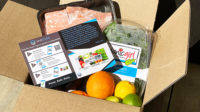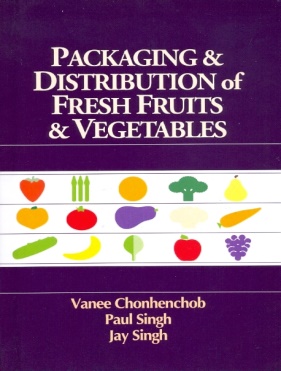C-Suite Q&A: 5 Questions with Carrie-Ann Flank, VP of Sales at Thermo King America

Carrie-Ann Flank serves as vice president of sales for Thermo King Americas. Flank joined the company last year, bringing two decades of experience and knowledge in the transportation industry.
Thermo King has been providing transport temperature control solutions for a variety of applications, including trailers, truck bodies, buses, air, shipboard containers and railway cars since 1938. Through its nationwide We Move Food program, Thermo King partners with Feeding America and its more than 200 food banks to safely and efficiently reclaim healthy foods from retailers and restaurants that could otherwise go to waste.
The company is committed to delivering a fully electrified portfolio of sustainable solutions for every cold chain segment in the Europe, Middle East and Africa (EMEA) regions by 2023 and in the Americas by 2025.
1. Food waste can be reduced by up to 25% by applying cold chain technology. What are some of the latest advancements in refrigerated transportation?
Bold solutions for a more sustainable world are core to Thermo King’s strategy. In 2021, Thermo King launched an all-electric portfolio, branded evolve to align with customers’ goals to transition to more sustainable solutions for their fleets and stay ahead of future regulations. This is one of the ways Thermo King is accelerating solutions for customers, particularly in California, who need immediate help to reach their zero-emission targets.
Our all-electric portfolio also helps advance Trane Technologies’ 2030 Sustainability Commitments, including its Gigaton Challenge, to reduce customer greenhouse gas emissions by 1 billion metric tons. Thermo King will have electric solutions available in every cold chain segment in EMEA by 2023 and in the Americas by 2025.
2. How are regulations/standards shaping the electrification landscape?
Regulations and guidelines set by the California Air Resources Board (CARB) are having a significant impact on how and when fleets begin to transition to zero-emission technology. Current zero-emission regulations being implemented by CARB are primarily focused on medium-duty vehicles. By December 31, 2023, truck TRU (class 4-8) fleets must transition to zero-emission at 15% each year for the next seven years and all trucks operating in California must be zero-emission by December 31, 2029.
In order to support fleets through this transition, CARB has created the Clean Off-Road Equipment Voucher Incentive Project (CORE). CORE is a $125 million project funded by California Climate Investments that is intended to encourage California off-road equipment users to purchase or lease currently commercialized zero-emission off-road equipment. This streamlined voucher incentive project helps offset the higher cost of zero-emission technology with a point-of-sale discount.
This incentive project significantly helps customers finance their journey to achieve zero emissions by December 31, 2029. Thermo King is taking multiple approaches in order to help customers meet the zero-emission CARB regulations.
Also beginning in 2023, CARB will require TRUs operating in California to use refrigerants with a global warming potential (GWP) of 2200 or less. In January, Thermo King transitioned to a lower GWP refrigerant as standard in its truck and trailer units to reduce the carbon footprint of refrigerants used by our customers’ long-haul, middle-mile, and last-mile delivery fleets by nearly 50% or approximately 650,000 metric tons of CO2e annually. This is equivalent to the emissions of 143,000 passenger vehicles per year.
All of these product innovations are important in decarbonizing the refrigerated fleets that deliver life-sustaining cargo, including foods and medicines.
3. What are some proactive key steps companies can take to prepare for this shift toward electrification?
Almost every week there are announcements of new electric truck models being presented in concept, in prototype, or ready for deployment. It’s an exciting time within the transportation industry, but with that excitement comes uncertainty around how fleets will be able to integrate all-electric or zero-emission technology into their operations.
To make specifying and deploying an electric fleet a reality, companies will need to invest in their charging infrastructure, select charging equipment that fits their operations and ensure that their vehicles and charging systems are compatible. Fleets can do three key things now as they prepare to invest in new technology:
- Adopt standards-based charging when specifying equipment.
- Evaluate their current operations; refrigerated fleets especially should review dispatch scheduling and in-yard loading and staging durations.
- Determine the charging infrastructure and placement that fits their operation.
The time to plan infrastructure is now. The entire process from initial permitting and groundbreaking to when chargers are delivered and up and running can take 18 to 24 months. Assembling a team that will help through the planning process is vital and will make implementation easier. This team can include local power utility providers, government officials, electric charging infrastructure consultants and OEM partners, to provide fleets and their partners with insight on what requirements and configurations are best suited for transport refrigeration.

Image courtesy of Thermo King.
4. How do telematics play an important role in preparing for an electrified world?
Telematics allows fleets to monitor the current and past temperature history of a load, trailer location, fuel levels, door openings, and reefer operation data in real time and across the entire company. Access to this data enables fleets to gain an analysis of their asset utilization, fuel consumption, and maintenance needs that will help them determine the zero-emission solutions that will best fit their operations.
Collecting and analyzing data through telematics also allows us to work with customers like Walmart who are undergoing electrification trials. The operations data and learnings that are gathered can be documented with each trailer demonstration and directly contribute to future product optimization and innovation.
5. What are some key operational learnings from recent electrification trials?
Thermo King has completed initial testing of its innovative evolve hybrid electric trailer with retailers Walmart and Loblaws, and Martin Brower, a leading supply chain solutions provider for restaurant chains around the world. Through 2,500 hours of trial runs, the hybrid-electric trailer kept food and other critical cargo fresh while running on battery power versus diesel fuel. With zero direct emissions, the new electric trailer units will significantly decarbonize the cold chain market and help customers come closer to electrified fleets.
Thermo King began working with Walmart late last year for its first-ever trial of a refrigerated trailer operated on battery electricity in the U.S. During the two-month trial, Walmart ran 18 routes hauling groceries between its distribution center in Shafter, California, and stores in the surrounding areas with exciting results. This included running on electricity 83% of the time during the pilot and collecting valuable data that will enable further development of the technology and ultimately move the refrigerated industry forward.
Looking for a reprint of this article?
From high-res PDFs to custom plaques, order your copy today!








